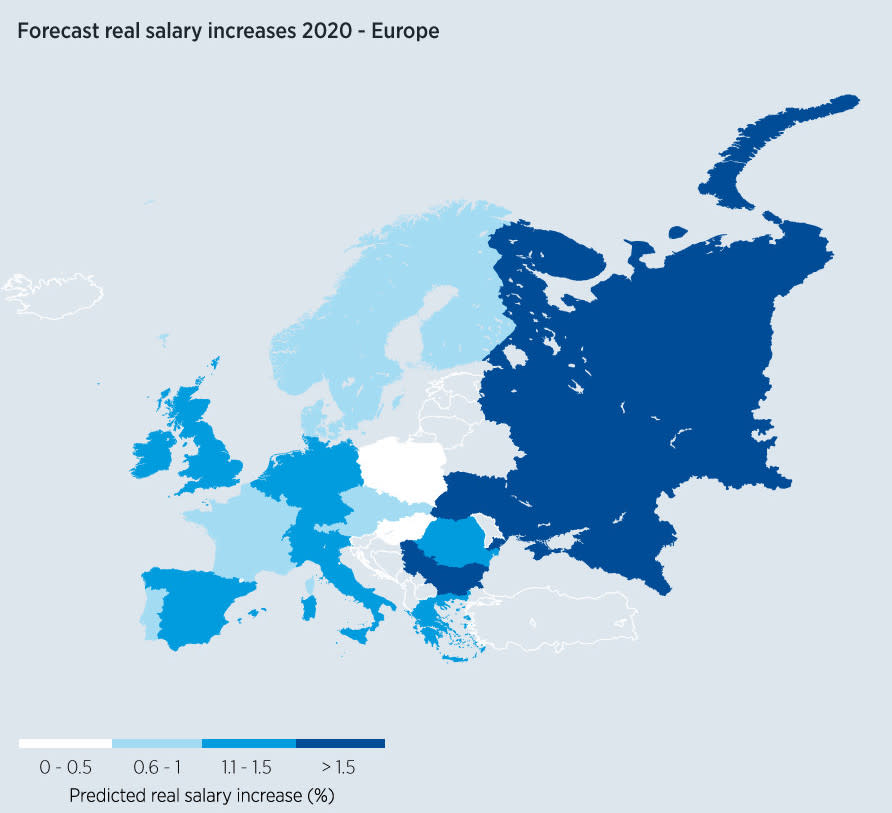The 10 countries where incomes will rise fastest at big firms in 2020

Workers at major firms in India are set for some of the biggest pay rises of any country in the world next year, according to new figures.
A new survey looks at how much more or less hundreds of multinational companies are set to pay their workers in 2020 in 68 countries across the globe.
The survey considers how much salaries will change in real terms after inflation, factoring in changes in the price of everyday goods that can erode the value of pay rises.
13 of the top 20 are in Asia in the survey by ECA International, where rises are expected to be almost three times higher than in Europe.
READ MORE: Biggest fall in UK employment in four years as firms axe part-time staff
India tops the table, with multinationals’ workers in the country reported to be in line for a 5.4% pay rise in 2020.
Vietnam finishes in second place (5.1%), followed by Indonesia (4.6%), Cambodia (4.2%) and Thailand and Ukraine (both 4.1%).

The Philippines, China, South Korea and Bangladesh made up the rest of the top 10, with wages expected to rise more than 3% even after inflation.
But multinational firms only employ a small section of the workforce in many countries in the list, so changes in pay for large swathes of their populations could be significantly different.
READ MORE: Labour would let workers pick their hours in ‘workplace revolution’
More than two billion workers worldwide work in the informal economy, including 68.2% of workers in Asia and the Pacific, according to the International Labour Organisation.
The ECA International figures for Europe suggest Ukraine will record the largest percentage increase in real incomes in 2020 on the continent.
Russia comes in second on the list at 2.9%, with Serbia third at 2.1%, Bulgaria fourth at 1.7% and Italy and Spain joint fifth at 1.5%.
British workers are expected to receive a 1.5% increase worth an average of £335 at multinational firms, while their US counterparts could see a 0.7% leap.
READ MORE: UK workers face ‘longest pay squeeze in centuries’
“Once again, the vast majority of the highest real salary increases in the world are predicted to be seen in Asia,” said Steven Kilfedder, production manager at ECA International.
“This is a trend that we have seen for many years now due to low inflation and rising productivity in many Asian economies, resulting in salaries growing rapidly compared to other regions.”
Meanwhile workers at multinationals in Argentina could face the biggest squeeze amid an economic crisis, with a 22% decline expected in the real value of their take-home pay after an even steeper decline last year.
“Although President Macri and his government have now been replaced by their populist rivals in a recent election, the outlook for Argentina does not look promising and it is likely that the economic situation will get worse before it gets better,” added Kilfedder.

 Yahoo Finance
Yahoo Finance 